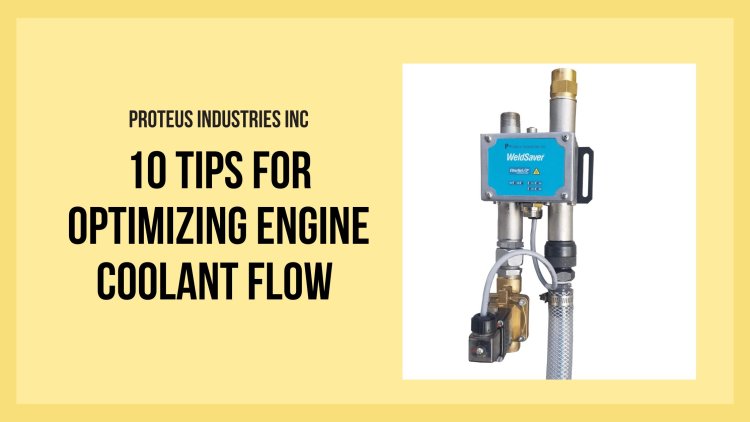10 Tips for Optimizing Engine Coolant Flow
Proteus Industries Inc. understands these components' critical role in optimizing engine coolant flow.
Share this Post to earn Money ( Upto ₹100 per 1000 Views )

The proper circulation of engine coolant is critical for maintaining the optimal temperature of your vehicle's engine. In this article, we'll explore ten essential tips for optimizing engine coolant flow and promoting the longevity and efficiency of your vehicle's cooling system.
1. Regular Coolant Checks:
Routine checks of your coolant level and condition are fundamental. Ensure that the coolant reservoir is filled to the recommended level, and inspect for any signs of contamination or debris.
2. Coolant Quality Matters:
Invest in high-quality coolant with the right mix of antifreeze and water. We ensure adequate heat transfer and protection against freezing and overheating. Check the manufacturer's recommendations for the appropriate coolant type.
3. Maintain the Cooling System Pressure:
The cooling system operates under pressure to raise the boiling point of the coolant. Regularly check the radiator cap to ensure it maintains the correct pressure levels.
4. Flushing the System:
Over time, coolant can accumulate contaminants and lose its effectiveness. Periodically flushing the cooling system removes sediment and debris and maintains optimal flow.
5. Thermostat Health:
The thermostat regulates coolant flow through the radiator. Ensure it is functioning correctly, opening and closing as needed. A malfunctioning thermostat can lead to inefficient cooling and potential engine damage.
6. Efficient Water Pump Operation:
The water pump is a vital component for coolant circulation. Regularly inspect the water pump for leaks, corrosion, or bearing issues. Address any concerns promptly to prevent cooling system failures.
7. Radiator Condition:
Inspect the radiator for signs of corrosion, leaks, or damage. Clean the radiator fins regularly to remove debris and ensure efficient heat dissipation.
8. Proper Coolant Mix:
Maintaining the correct coolant-to-water ratio is crucial. Too much water can lead to freezing in colder temperatures, while too much coolant can reduce heat transfer efficiency.
9. Coolant Control Valves:
Consider using coolant control valves to regulate coolant flow through the engine. These valves help optimize temperature control and prevent excessive cooling.
10. Professional Maintenance:
Engage in regular professional maintenance, especially for complex tasks like coolant system pressure tests, radiator flushes, and overall system inspections. Experienced technicians can identify potential issues before they escalate.
Proteus Industries Inc: Pioneering Excellence in Coolant Control Solutions
As a leader in coolant control valves, Proteus Industries Inc. understands these components' critical role in optimizing engine coolant flow. Their commitment to innovation and precision engineering ensures that vehicles with their products experience enhanced cooling system performance.
In Conclusion:
Optimizing engine coolant flow is integral to your vehicle's overall health and performance. Regular maintenance, attention to coolant quality, and incorporation of advanced solutions like coolant control valves contribute to a reliable and efficient cooling system. Following these tips, you can safeguard your engine against overheating and ensure a smooth and trouble-free driving experience.







